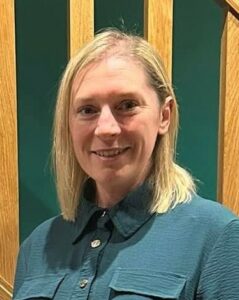Supporting people to reduce their risk of developing Type 2 diabetes
Blog
- This week is Type 2 Diabetes Prevention Week. An estimated 6.3 million people live with prediabetes. If left untreated it can develop into Type 2 diabetes which can lead to serious health complications. There are programmes to help those identified as at risk of Type 2 diabetes, such as the Healthier You: the NHS Diabetes Prevention Programme provided by Reed Wellbeing. This can help you take control and prevent the disease from developing
- We caught up with Heather, Lead Health and Wellbeing Coach at Reed Wellbeing. She delivers the Healthier You: the NHS Diabetes Prevention Programme to participants in the North-East and North Cumbria
How are people selected to join the Healthier You: NHS Diabetes Prevention Programme?
Heather (pictured): Referral on to the Healthier You: Diabetes Prevention Programme (NDPP) is by the person’s GP or healthcare professional. The person would have had a HBA1C blood test and if they had a reading between 42 and 47, their GP would have asked if they’d like to be referred to us. After receiving the person’s referral, we would contact them within a set timescale to invite them to join a programme within their local area.
We offer a programme which is 13 sessions over nine months. These are held in local venues like community centres, churches, community hubs and we try to get as close to participants as we can to make it accessible for them to join the programme.
 Each session covers specific topics, such as nutrition, activity, mindset, mental health and stress. Each session covers one of these; for example when we do a session on food we break it down into carbohydrates, fats, sugars, protein and dairy. The sessions last 90 minutes and we have up to 25 people in a group format. Our focus is risk reduction – supporting people to reduce their risk of developing Type 2 diabetes.
Each session covers specific topics, such as nutrition, activity, mindset, mental health and stress. Each session covers one of these; for example when we do a session on food we break it down into carbohydrates, fats, sugars, protein and dairy. The sessions last 90 minutes and we have up to 25 people in a group format. Our focus is risk reduction – supporting people to reduce their risk of developing Type 2 diabetes.
It is very much up to each participant how much they want to give to the programme. The more they engage with it, the more likely they are to succeed in reducing their risk of Type 2 diabetes. I’ve known participants come up at the end of the programme to say, ‘Thank you very much, I’ve really enjoyed the programme, I’ve reduced my risk.’
How do you measure the success of course participants in reducing their risk of Type 2 diabetes?
Each person is given a checklist of behaviours to work on throughout the programme. This covers their food and drink intake, and muscle-strengthening exercises. At the first session we ask them to rate themselves as ‘bronze’, ‘silver’ or ‘gold’ for each behaviour. Then they revisit their scores at the seventh and thirteenth sessions. Sometimes, people don’t appreciate how much their behaviours have changed over the programme – but they might say, ‘Nine months ago when I started, I didn’t have any understanding of my food intake, but now I know how many carbs and how much fat I’m having.’
Describe your job satisfaction as a coach on the Healthier You: NHS Diabetes Prevention Programme
It’s amazing! I’m able to help people to improve their health, and support those who are faced with a potentially chronic illness. At the beginning, we see people who are worried, upset and in disbelief over what’s happening to them. But by the end of the programme they will typically say, ‘Thank goodness I’ve done it. Thank you for all your help.’ Making the sessions enjoyable and encouraging people to come along brings me great satisfaction and I feel like I’ve got the best job in the world.
What’s your advice to someone who’s concerned about their risk of Type 2 diabetes?
Pre-diabetes can be unforeseen and for a lot of people there are no real warning signs you are at risk. If you’re concerned, make an appointment with your GP and ask to have the HBA1C test. If it comes back as prediabetic, don’t worry – there are services to help and support you. If you’re referred to the Healthier You: NHS Diabetes Prevention Programme, come along to our sessions and use our knowledge and expertise to reduce your risk and trust that we will do everything we can to help you.
- Since August 2022, in the North East and North Cumbria, Reed Wellbeing has had 18,000 people start the programme, who have accessed it through face-to-face sessions, remotely or digitally.
- Anyone can develop Type 2 diabetes and it can lead to serious health complications if left untreated. Certain factors can increase your risk – such as being over 40. Check your risk using the Diabetes UK risk tool. It could be the most important thing you do today.
